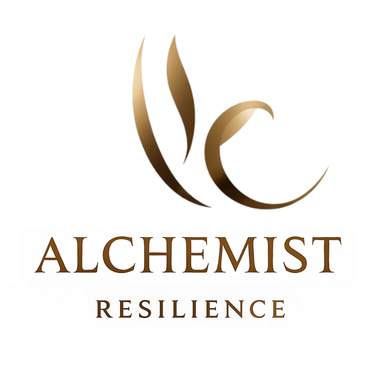When life seems to be on hold: crossing the threshold into a new cycle
Sometimes, what holds us back is not a lack of courage, but a lack of clarity. A coach trained in these approaches can help you shed light on this uncertainty, connect the dots, and identify the season you are going through - not to rush it, but to extract meaning from it.
HUMAN RESILIENCE
Christian
10/14/20254 min read


There comes a time in life when everything seems to have come to a standstill. Certainties crumble. Plans lose their sparkle. What motivated us yesterday seems dull today. We move forward without really knowing why, as if the inner thread had become loose.
These periods of uncertainty are confusing. They are often mistaken for fatigue, a loss of motivation, or even a form of crisis. However, they are much more than that: they are transitions, spaces between two cycles where something within us is seeking to be reborn.
Time suspended: between what is no longer and what is not yet
Frédéric Hudson, professor at Columbia University and founder of one of the first coaching programs in the United States, described life as a succession of evolutionary cycles. Inspired by the rhythm of the seasons, he observed that every human being goes through periods of growth, stability, decline, and regeneration several times in their life.
But these transitions are not always consciously experienced. We feel that “something must change,” without knowing what or how. This is often where confusion sets in: we want to move forward, but the old reference points no longer work.
Hudson spoke of “transition zones,” comparable to winter in nature: a time when the seed remains invisible underground, but prepares to germinate. This moment is uncomfortable because it forces us to slow down, listen, and accept not knowing. And yet, it is in this inner silence that the next stage of our lives is prepared.
When change no longer comes from outside
Many people try to resolve these phases by “doing more”: a new project, a move, training, a meeting. But the real transition does not take place outside—it begins in the consciousness.
American psychologist Robert Kegan has shown that adult growth is not just about accumulating skills, but about changing the way we see ourselves and the world. In other words, human evolution is above all an evolution of meaning.
When life seems to be on hold, it is not a standstill, but an invitation to redefine our story:
Is what made sense until now still true?
What part of me resists change?
What new form of life is seeking to emerge through this apparent void?
Guidelines for navigating the transition
Each cycle of transformation has its own distinct signs. Recognizing them helps us understand where we are in our own season:
The end of a cycle: we feel a vague weariness, a loss of desire, sometimes a sense of incoherence. What was obvious is no longer so.
The in-between: a vague period where nothing seems to be moving forward. This is when many people become discouraged, because everything seems to be at a standstill. In reality, it is a time of silent maturation.
Emergence: a new idea, a vision, a different momentum appears. Energy returns, clearer and more aligned.
Realization: the cycle comes back to life in another form.
But few people go through these stages alone. The human mind naturally resists the discomfort of change. We need reference points, a mirror, a space to be heard. This is where integrative coaching comes in, a form of support designed to help us cross the invisible thresholds of transformation.
The role of the coach: a traveling companion and catalyst for clarity
A good coach does not provide solutions. They shed light. They help put words to what is being experienced, to distinguish what should be kept from what needs to be transformed.
Powerful tools exist to support these transitions:
The Wheel of Life (Paul J. Meyer): a comprehensive diagnosis to identify areas of imbalance.
The Logical Levels of Change (Robert Dilts): to understand at what level (environment, behavior, values, identity, mission) the blockage lies.
The curve of change (Elisabeth Kübler-Ross): a model that describes the emotions experienced during a transition (denial, anger, exploration, acceptance).
The transformation journal (Martha Beck, Harvard): a questioning tool to clarify the subtle signs of inner change.
Through active listening and targeted questioning, the coach helps you navigate this period without judgment, turning it into a door rather than a wall.
The art of living through transition
The biggest challenge in these moments is not “knowing what to do,” but learning to be with what is. Eastern traditions have long understood this: all external change stems from an internal transformation. Learning to slow down, meditate, listen to your body, write down your dreams, and observe your resistance are simple but powerful practices for reconnecting with yourself.
It is often at this stage that coaching takes on an integrative dimension: it is no longer a question of “solving a problem,” but of reconciling the different parts of oneself - reason, heart, intuition, body.
A new beginning
When meaning returns, everything naturally falls back into place. Decisions become clearer, priorities simpler. It's not a “new life” that begins, but the same life lived differently. The most inspiring leaders - whether they come from the world of business, art, or research - often talk about these turning points: a period of doubt, a forced pause, an existential shift. It is in these transitional periods that they discovered their true alignment.
And you, do you feel that something within you is calling for renewal? If so, perhaps you are already going through your own inner season.
Because life is constantly reinventing itself - and so are we.
“What the caterpillar calls the end of the world, the master calls a butterfly.” Richard Bach
If you recognize yourself in these words, perhaps you are at the turning point of a new chapter. The transition is not always comfortable, but it holds immense promise: the promise of becoming fully in control of your own life again. A coach trained in these approaches can help you clarify your season, understand your resistance, and transform this unclear moment into a springboard toward a new coherence in your life - whether personal, professional, or relational.
In summary
Phases of “emptiness” are not weaknesses, but necessary transitions.
Understanding where you are in your life cycle is key to moving forward without losing your way.
Tools such as those developed by Hudson, Beck, Kübler-Ross, and Dilts can help you make sense of the transition.
Integrative coaching provides a safe space to navigate, understand, and be reborn.
What if this moment of suspension were not a dead end, but a threshold?
A threshold to a more aligned, more conscious, more vibrant life.
Because every transition carries with it the promise of a new beginning.
Alchemist Resilience
Human resilience, medicinal plants, and mind-body balance.
© Alchemist Resilience 2025. All rights reserved
Email : alchemistresilience@gmail.com
Attentive and confidential response
